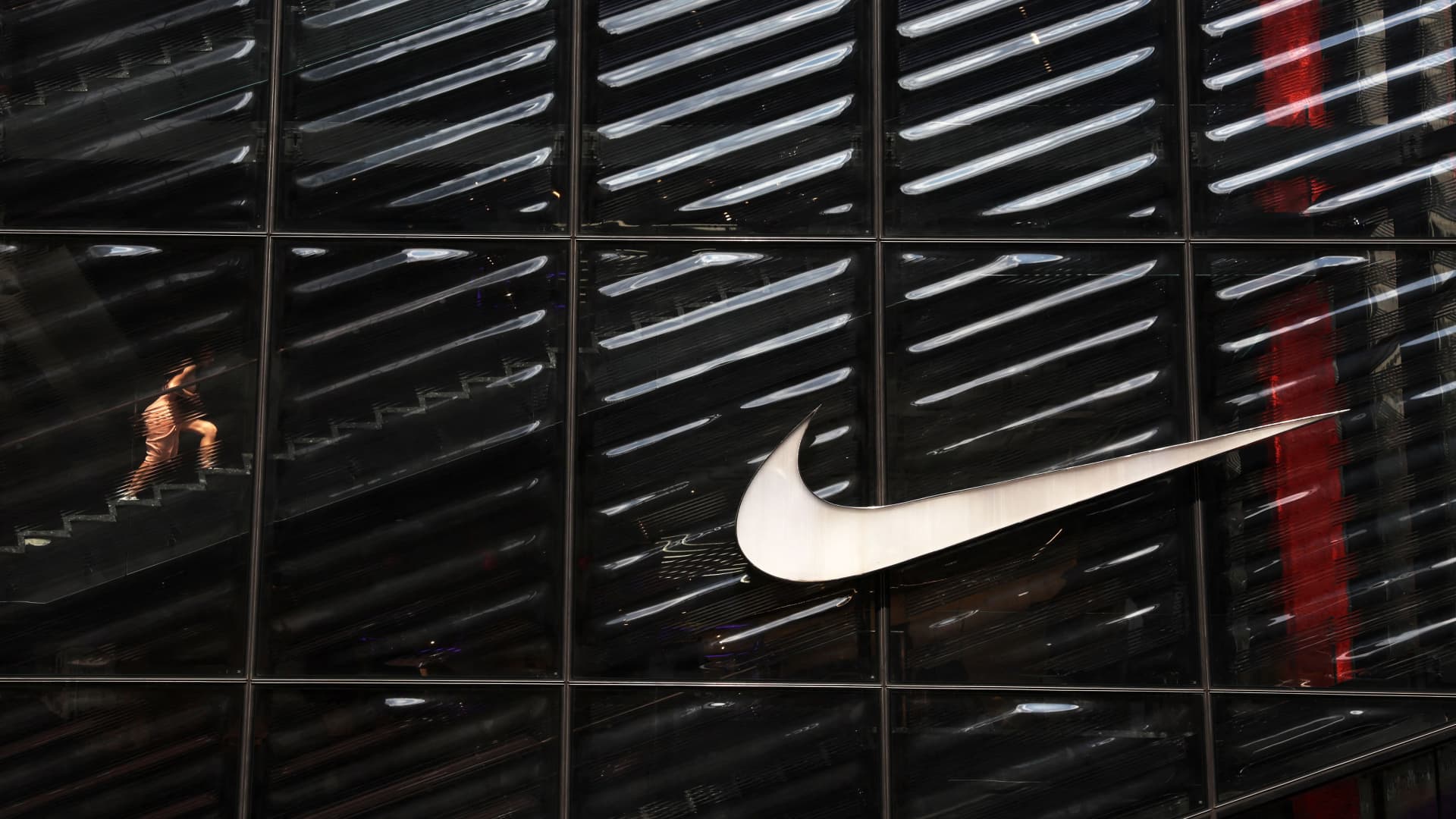Blackstone launched a $1.74bn bid to take Japanese digital comic distributor Infocom private, including a tender offer for a per-share price of 6,060 yen, Infocom said on Tuesday.
Source: Reuters
UK environmental consulting and engineering service provider RSK Group is set to receive a £500m…
Private equity firm ChrysCapital is set to invest $100 million in Indian eyewear brand…
Antares Capital has closed its third broadly syndicated loan collateralised loan obligation, Orion…
Stocks making the biggest moves premarket: Gilead Sciences, Sarepta Therapeutics, Nike and more
Deep Dive: Investors abandoning TIPS on falling inflation ‘misunderstand’ performance drivers
This week (19 June), the UK saw inflation return to the 2% target for the first time since 2021, while last month US consumer price inflation came in at 3.3%, a far cry from the double digits seen in 2023. With inflation expected to continue on this downward trend, Stuart Chilvers, Rathbone Strategic Bond manager, said it could be “natural” to assume that inflation linked bonds “are not a particularly exciting” in that environment. “However, they misunderstand how they are valued and what causes them to outperform or underperform,” he said. BoE hold ‘made sense’ amid General Electi…
Private Equity Buys Almost $15bn In Renewable Energy Big Time
The world is rapidly shifting towards clean renewable energy solutions, driven by their immense potential to mitigate climate change and achieve global net zero targets. Surprisingly, private equity firms are at the forefront of this trend, investing heavily in solar, wind, biomass, and other renewables.
These firms are drawn not only by the social and humanitarian benefits but also by the economic advantages of renewables, which include low-cost power, reduced reliance on imported fuels, and a more secure, reliable energy supply.
Private capital is experiencing a surge in acquiring renewable energy developers, increasingly favoring equity-based take-private deals for leveraged buyouts due to high interest rates and rising electricity demand.
The statistics underscore this movement. In 2023, private equity and venture capital transactions in the global renewable energy sector nearly reached $15 billion.
Get the week’s top news delivered directly to your inbox – Sign up for our newsletter
Moreover, funds raised for renewable energy projects in recent years are approaching 25 times the value of fossil fuel asset fundraising, per another industry report. This significant financial commitment highlights the growing recognition of the economic viability and long-term benefits of renewable energy investments.
Key investors such as KKR & Co. Inc., Brookfield Asset Management Ltd., EQT AB, and Energy Capital Partners LLC have actively bid for listed renewable platforms this year, aiming to accelerate the companies’ installed capacity in the coming years.
After a period of limited dealmaking activity, asset managers and infrastructure funds are now leveraging their project development skills as they grow more comfortable with the renewable energy sector. Brookfield Renewable Partners, for instance, has a strong track record of acquiring developers with significant pipelines in the US.
Peter Zhu, managing director at Macquarie Group Ltd.’s Green Investment Group, highlighted that the current higher interest rate environment has adjusted equity returns for renewables favorably, creating an attractive investment window for leading renewable platforms.
Last month, private equity firm EQT offered offered to acquire Swedish renewable energy company OX2 for $1.5 billion. The goal is to enhance EQT’s renewable energy portfolio and boost OX2’s growth in the energy sector.
This shift indicates a strategic pivot in private capital investment, focusing on
Bridgepoint to Buy Alpha Financial Markets Consulting in £626m Deal
Alpha Financial Markets Consulting agreed to be bought by Bridgepoint Group in a deal valuing the London-listed specialist consulting firm at around $796.2 m.
Private equity firm Bridgepoint is offering 505 pence in cash per Alpha FMC share, the groups said Thursday. The price is a 51% premium to the company’s closing price of 335.0 pence on April 30, the day before the takeover interest was disclosed.
Alpha FMC’s board is unanimously recommending the offer, which is final and won’t be increased, they said.
The transaction is expected to close during the third quarter and is subject to conditions and approvals.
Get the week’s top news delivered directly to your inbox – Sign up for our newsletter
The group said in early May that it received an indicative proposal from Bridgepoint regarding a possible takeover cash offer and on Wednesday said that its board would recommend the deal to shareholders if a formal offer was made. Private equity firm Cinven Limited also expressed interest in buying the company but withdrew it later in the month.
Source: Market Watch
UK environmental consulting and engineering service provider RSK Group is set to receive a £500m…
Private equity firm ChrysCapital is set to invest $100 million in Indian eyewear brand…
Antares Capital has closed its third broadly syndicated loan collateralised loan obligation, Orion…
Private Equity Firms Seek NFL Investment Amid $1.2tn War Chest
The National Football League is an exclusive club, and for those looking to buy their way in, the price of a franchise has gotten so high it’s beyond the reach of ordinary billionaires. But now the league is set to change its rules and allow private equity firms, which make their living buying and flipping businesses, to invest in teams. Could this change how the league—and many people’s favorite teams—do business?
The short answer is we shouldn’t expect an onslaught of buyout shops bidding for NFL teams just yet. But there will be interest. The NFL’s guaranteed TV deals could be worth more than $126 billion by 2033, according to Forbes.
In recent years, valuations of NFL teams have soared, prompting considerable interest in the league’s 32 franchises. Last year, for instance, Dan Snyder sold the Washington Commanders for a record $6.05 billion to a group of investors led by Josh Harris. Snyder paid $800 million for the team—then called the Redskins—in 1999. The purchase of the Commanders stands as the most expensive sale of an American sports franchise, even eclipsing the $4.65 billion paid for the Denver Broncos in 2022.
Get the week’s top news delivered directly to your inbox – Sign up for our newsletter
If billionaires can no longer afford sports franchises, who can? Well, that’s why league officials are taking a hard look at private equity firms, which are sitting on a $1.2 trillion war chest and always on the hunt for deals. A handful of PE firms have amassed stakes in NBA, MLS, MLB, and NHL franchises; the small number is mainly the result of high barriers to entry. (For example, most leagues require potential funds to have at least $750 million in capital, one source familiar with the franchise industry told Fortune.)
The NFL is the last major professional sports league in North America that prohibits private equity firms from investing in teams, a rule that reflects the owners’ historical desire to keep the NFL an insiders’ club. But since the summer of 2023, a special committee has been reviewing potential changes to those rules, according to ESPN. The NFL has appointed PJT Partners to serve as
RBC Brewin Dolphin’s Janet Mui: Why chip and oil stocks can gel in portfolios
Our view is that the key factors that drove high inflation, including loose monetary policy, fiscal largesse and supply constraints, have mostly reversed. While the US job market remains tight, the supply-demand imbalance in labour has improved meaningfully. The ratio of job openings to the number of unemployed has dropped from a high of 2.0 in mid-2022 to 1.3 in March 2024. Even as job gains remained strong, wage growth continued to slow due to higher immigration (hence a bigger pool of available workers). BoE hold ‘made sense’ amid General Election-induced ‘vow of silence’ …
Mapped: 15 Countries with the Highest Smoking Rates
Published
9 seconds ago
on
June 21, 2024 Graphics/Design:
See this visualization first on the Voronoi app.
Mapped: 15 Countries with the Highest Smoking Rates
This was originally posted on our Voronoi app. Download the app for free on iOS or Android and discover incredible data-driven charts from a variety of trusted sources.
It was not until 1950 when the link between smoking and lung cancer was proven, though physicians as far back as the late 19th century had identified it as a potential cause.
Since then, many countries have discouraged tobacco products in an attempt to reduce smoking rates, and consequent health effects.
We visualize the countries with the highest rates of tobacco use among their population aged 15 and older. Data is sourced from the World Health Organization, and is current up to 2022.
Which Countries Smoke the Most?
In Nauru, nearly half of the population aged 15+ uses a tobacco product, the highest in the world. The island also has a high obesity rate, and nearly one-third of the population suffers from diabetes, due to poor nutritional variety in the food supply.
Here’s a list of smoking rates by country, ranked from highest to lowest.
RankCountryTobacco use in
those aged 15+ 1🇳🇷 Nauru48% 2🇲🇲 Myanmar44% 3🇰🇮 Kiribati40% 4🇵🇬 Papua New Guinea40% 5🇧🇬 Bulgaria40% 6🇷🇸 Serbia40% 7🇹🇱 Timor-Leste39% 8🇮🇩 Indonesia38% 9🇭🇷 Croatia37% 10🇸🇧 Solomon Islands37% 11🇦🇩 Andorra36% 12🇧🇦 Bosnia &
Herzegovina36% 13🇨🇾 Cyprus36% 14🇯🇴 Jordan36% 15🇫🇷 France35% N/A🌍 World23%
Note: Figures rounded. “Tobacco use” includes smoke and smokeless products.
Meanwhile, countries in the Balkan also see a high incidence of tobacco use, bucking the general European trend. Entrenched cultural norms, lax laws, and inexpensive cigarettes are some of the most commonly identified causes.
On the other hand, tobacco use is a lot lower in the Americas and sub-Saharan Africa.
In the U.S., fewer than one in four adults smoke. Canada is even lower at 12% of the population. But some African countries (Nigeria and Ghana) are all the way down in the single-digits, at 3%.
Interestingly, men smoke more than women
Cryptofinance: Tether’s new take on the gold standard
Standard DigitalWeekend Print + Standard Digital
wasnow $75 per month
Complete digital access to quality FT journalism with expert analysis from industry leaders. Pay a year upfront and save 20%.
What’s included
Global news & analysisExpert opinionFT App on Android & iOSFT Edit appFirstFT: the day’s biggest stories20+ curated newslettersFollow topics & set alerts with myFTFT Videos & Podcasts20 monthly gift articles to shareLex: FT’s flagship investment column15+ Premium newsletters by leading expertsFT Digital Edition: our digitised print editionWeekday Print EditionFT WeekendFT Digital EditionGlobal news & analysisExpert opinionSpecial featuresExclusive FT analysisFT Digital EditionGlobal news & analysisExpert opinionSpecial featuresExclusive FT analysisGlobal news & analysisExpert opinionFT App on Android & iOSFT Edit appFirstFT: the day’s biggest stories20+ curated newslettersFollow topics & set alerts with myFTFT Videos & Podcasts10 monthly gift articles to shareGlobal news & analysisExpert opinionFT App on Android & iOSFT Edit appFirstFT: the day’s biggest stories20+ curated newslettersFollow topics & set alerts with myFTFT Videos & Podcasts20 monthly gift articles to shareLex: FT’s flagship investment column15+ Premium newsletters by leading expertsFT Digital Edition: our digitised print editionEverything in PrintWeekday Print EditionFT WeekendFT Digital EditionGlobal news & analysisExpert opinionSpecial featuresExclusive FT analysisPlusEverything in Premium DigitalEverything in Standard DigitalGlobal news & analysisExpert opinionSpecial featuresFirstFT newsletterVideos & PodcastsFT App on Android & iOSFT Edit app10 gift articles per monthExclusive FT analysisPremium newslettersFT Digital Edition10 additional gift articles per monthMake and share highlightsFT WorkspaceMarkets data widgetSubscription ManagerWorkflow integrationsOccasional readers go freeVolume discountFT Weekend Print deliveryPlusEverything in Standard DigitalFT Weekend Print deliveryPlusEverything in Premium Digital
Take Five: Goodnight Vienna
A selection of the major stories impacting ESG investors, in five easy pieces.
A big step forward was taken this week by Europe to protect nature, or was it?
Viennese waltz – Sighs of relief rather than celebratory cheers greeted the formal adoption of the Nature Restoration Law (NRL) by the Council of the European Union. The NRL, which commits to restoring at least 20% of member states’ land and sea areas by 2030, had failed to secure sufficient backing from governments in March. And it only scraped through this week after Austria’s climate and environment minister defied senior coalition partners, prompting fury and threats of legal action from Chancellor Karl Nehammer. It remains possible that the NRL – which barely survived a bumpy passage through the European Parliament last year – could yet face a reverse. This would be embarrassing for Europe to say the least, and far from helpful to efforts in Colombia in October to build out the Global Biodiversity Framework, particularly given the limited progress made on setting COP16’s agenda at an interim summit in Kenya last month. Even if the NRL remains untrammelled by Austrian political strife, intergovernmental negotiations on how its objectives are met via member states’ national restoration plans will be instructive, given Europe’s recently redrawn electoral landscape.
The next big thing – It can take a long time to become an overnight success. And many other factors besides. Chipmaker Nvidia took 25 years to reach a market capitalisation of US$1 trillion, before more than trebling in value to US$3.3 trillion in 12 months, overtaking Microsoft and Apple this week to become the world’s largest company. The firm’s meteoric rise stems from its strong positioning to profit from the explosion of investment in AI, which is rapidly expanding beyond the IT sector to early adopters in fields such as finance and healthcare, and predicted use cases elsewhere. But does Nvidia deserve a place in a sustainable investment portfolio? The California-based firm’s ESG scores are impressive, which is not a given for a sector known for resource consumption, especially water. But a bigger sustainability question might be raised with regard to Nvidia’s client base, which has yet to prove it can deliver on AI’s promises reliably or ethically. Governance concerns and social risks have worried policymakers and investors increasingly, with rules being introduced in multiple jurisdictions and questions being asked at the recent




